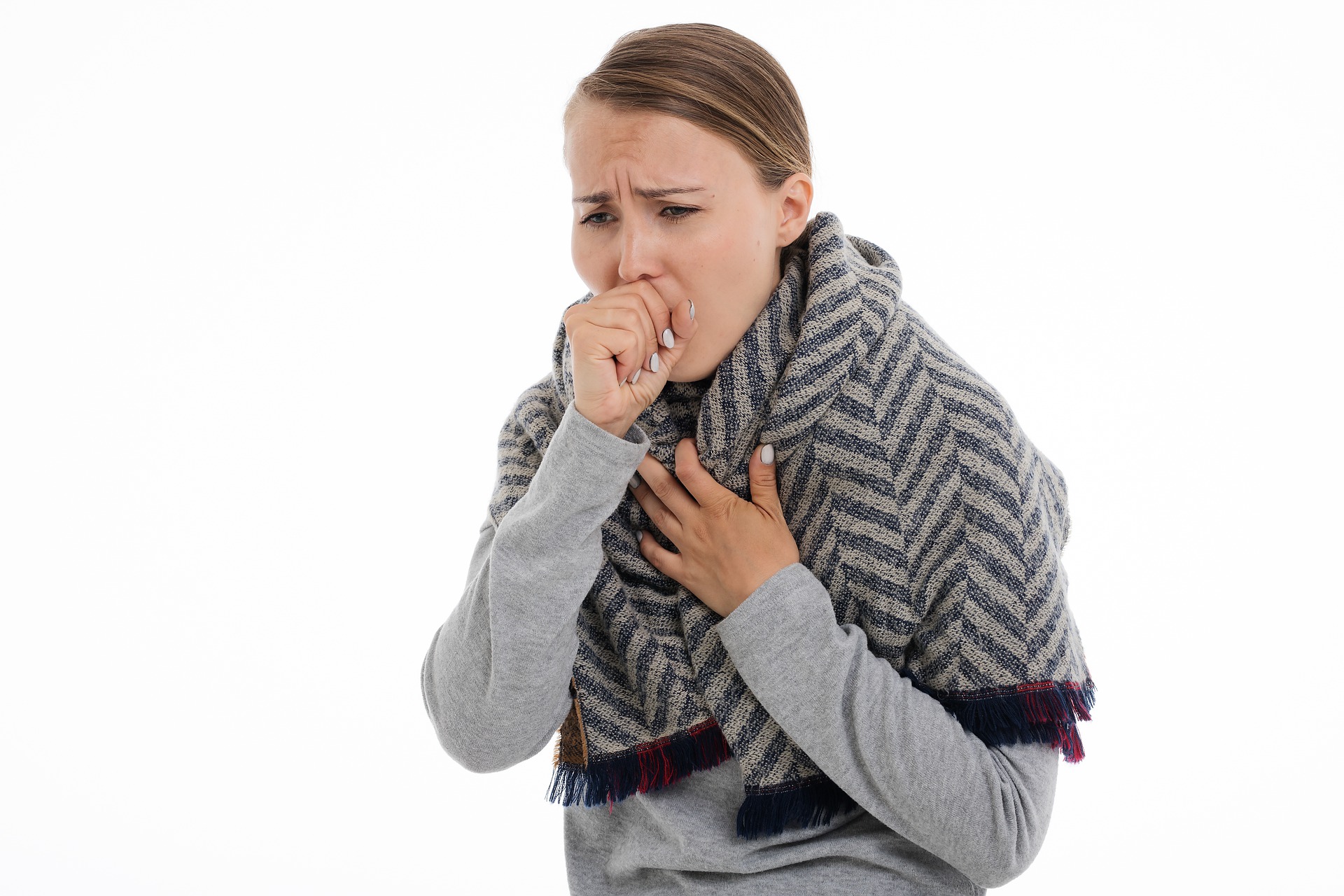A cough is one of the major symptoms of Covid-19 and a common feature of any respiratory infection but why do we cough and what actually happens in the body during a cough?
Coughs are annoying and irritating, both for the person suffering and for those around them (I seem to be as intolerant of listening to coughing as I am of hearing people chew!) They are however a protective mechanism designed to remove foreign particles from the windpipe and lungs. Larger objects such as food that’s gone down the wrong way and smaller particles such as dust, germs and mucous are all expelled from the body through coughing.
The lining of our airways contains specialised cells called goblet cells which produce mucous to keep our airways moist and to trap dirt and germs. Alongside them are ciliated cells which have hundreds of tiny, microscopic legs at their surface which wave, waft and move the mucous and trapped particles back up the airways. During an infection we may have a dry cough where little or no mucous is produced or a productive cough where the goblet cells work overtime making thick mucous to stop the airways drying out and trap bacteria and viruses.
Coughing is a reflex designed to protect us. There are cough receptors in our airways which are irritated by both chemical and mechanical stimuli. So, for example, the chemical receptors might be irritated if you inhale a strong cleaning fluid or regurgitate stomach acids and the mechanical receptors by breathing in particles of dust. When triggered, the cough receptors send a message to the ‘cough centre’ in the brain which in turn sends a message to all the muscles required to activate a cough.
If you think about how you cough, you’ll realise that the first thing that happens is that you breathe in (try it). This fills your lungs with air. For a cough to be effective the air needs to be expelled at high pressure. You’ll notice what happens next is a closing of your airways. You’ll feel your larynx tighten and at the same time you’ll feel your chest, abdominal muscles and diaphragm tense up. Once the pressure in the lungs has built up enough, then the glottis at the back of the throat opens and as the airways compress, the air is forcefully emitted and can bring trapped mucous and any other foreign bodies with it. That release of high pressure air causes a coughing sound.
In an emergency cough you might not breathe in first, if you’ve inhaled whilst eating then there’s no time for that and the body doesn’t want to take the food or drink further into the lung. In a cough with an infection, there’s time for a deeper breath in to bring up as much mucous as possible.
People who can’t cough effectively, for example the elderly or newborn babies are more at risk of lung infections such as pneumonia. People who have muscle disorders might not be able to generate enough power in the cough for it to be effective. Physiotherapists work closely with patients to help them deep breathe and cough and it’s one of the many reasons that people are encouraged to sit out in a chair in hospital and move around as soon as possible.
As a final thought. Coughing could also be said to be a friend to viruses. Particularly those viruses causing dry coughs, where little mucous is produced and there seems little benefit to coughing. Viruses (including Covid-19) are often transmitted in droplets produced by coughing. Perhaps a significant function of the cough is designed by viruses, to enable their transmission and spread.
Cover your coughs, wash your hands and please follow government advice re isolating yourself.
The next Quick Question will look at how we can stop coughing!
Featured Image: Anastasia Gepp from Pixabay
There are more answers to questions like these and lots of health information to help you lead a happy and active life in my book Sorted: The Active Woman’s Guide to Health.Published by Bloomsbury and awarded First Place in the Popular Medicine category at the British Medical Association Medical Book Awards 2018.

Disclaimer: I can’t give personal medical advice and as always with health advice, reading something online doesn’t replace seeing your doctor who knows your medical history and can assess you in person. So, if you are unsure then always seek the opinion of a health care professional.








One Comment